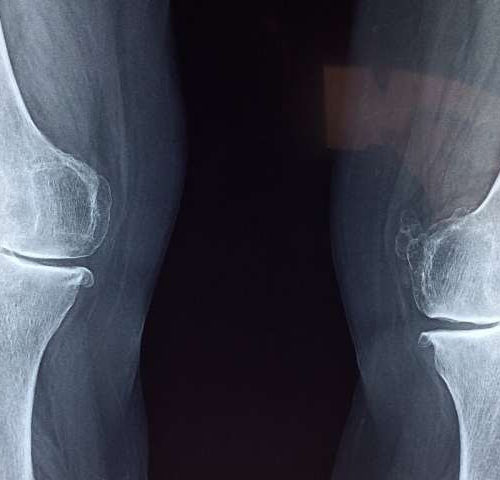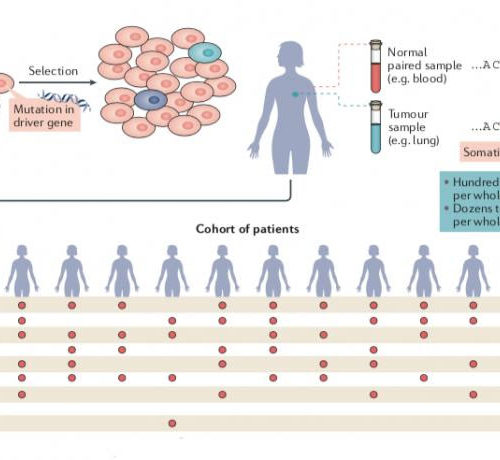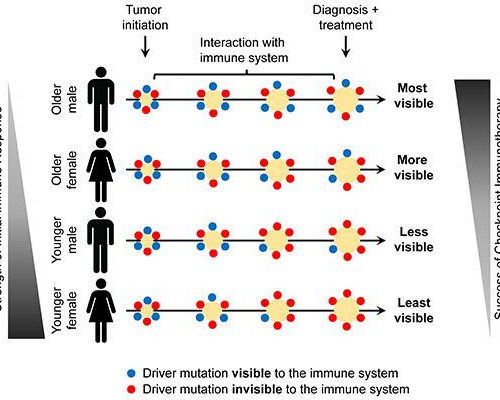This news or article is intended for readers with certain scientific or professional knowledge in the field. Telomeres are repeated DNA sequences at the ends of chromosomes. With each cell division a little telomere length is lost, and this is an important part of the countdown mechanism that limits replication of somatic cells. Somatic cells...
Multivitamin, mineral supplement linked to less-severe, shorter-lasting illness symptoms
by Steve Lundeberg, Oregon State University Older adults who took a daily multivitamin and mineral supplement with zinc and high amounts of vitamin C in a 12-week study experienced sickness for shorter periods and with less severe symptoms than counterparts in a control group receiving a placebo. The findings by Oregon State University researchers were...
Researchers find method to regrow cartilage in the joints
by Christopher Vaughan, Stanford University Medical Center Researchers at the Stanford University School of Medicine have discovered a way to regenerate, in mice and human tissue, the cushion of cartilage found in joints. Researchers at the Stanford University School of Medicine have discovered a way to regenerate, in mice and human tissue, the cushion of...
Bacteria’s secret weapon revealed
Monash Biomedicine Discovery Institute (BDI) scientists have discovered a previously unknown method used by bacteria to evade immune responses. The study, published in Nature Microbiology, points to potential new ways of countering bacterial infections, which are becoming increasingly resistant to antibiotics. First author Dr Pankaj Deo said researchers in Dr Thomas Naderer’s laboratory took a...
568 genes identified with the potential to trigger cancer
INSTITUTE FOR RESEARCH IN BIOMEDICINE (IRB BARCELONA) ANALYSIS OF THE GENOMES OF 28,000 TUMORS FROM 66 TYPES OF CANCER. view more CREDIT: IRB BARCELONA Cancer is a group of diseases characterised by uncontrolled cell growth caused by mutations, and other alterations in the genome of cells. A tumour can present from hundreds to thousands of...
Designed bacteria produce coral-antibiotic
Sustainable biotechnological production of a natural substance against tuberculosis TECHNICAL UNIVERSITY OF MUNICH (TUM) HORN CORALS OF THE SPECIES ANTILLOGORGIA ELISABETHAE PRODUCE ANTIBIOTIC NATURAL SUBSTANCES. A RESEARCH TEAM AT TUM HAS SUCCESSFULLY PRODUCED ONE OF THESE SUBSTANCES IN THE LABORATORY. view more CREDIT: (IMAGE: THOMAS BRÜCK / TUM) Thomas Brück saw the sea whip Antillogorgia...
New study: Hydroxychloroquine ineffective as a preventive antiviral against COVID-19
CLEVELAND–Researchers at Case Western Reserve University have added to the growing body of understanding about how hydroxychloroquine (HCQ) is not a possible defense against COVID-19. Specifically, they found that HCQ is not effective in preventing COVID-19 in patients with lupus and rheumatoid arthritis (RA), suggesting a broader interpretation of HCQ as ineffective preventive medicine for...
Why young and female patients don’t respond as well to cancer immunotherapy
Tumor cells in younger and female patients accumulate cancer-causing mutations that are more poorly presented to the immune system, better enabling tumors to escape detection and clearance UNIVERSITY OF CALIFORNIA – SAN DIEGO DUE TO A PROCESS KNOWN AS IMMUNO-EDITING, YOUNGER AND FEMALE PATIENTS WITH CANCER HAVE CANCER-CAUSING GENETIC MUTATIONS THAT ARE LEAST VISIBLE TO...
Protein produced by the nervous system may help treatments for inflammatory diseases
Rutgers researchers discovered a new role the protein may have in helping to treat allergies, asthma, COPD RUTGERS UNIVERSITY A Rutgers-led team may have found the key to treating inflammatory diseases like asthma, allergies, chronic fibrosis and chronic obstructive pulmonary disease (COPD). In a study published in the journal Nature Immunology, researchers discovered that neuromedin...
Smartphones may help detect diabetes
by University of California, San Francisco Researchers at UC San Francisco have developed a ‘digital biomarker’ that would use a smartphone’s built-in camera to detect Type 2 diabetes—one of the world’s top causes of disease and death—potentially providing a low-cost, in-home alternative to blood draws and clinic-based screening tools. Type 2 diabetes affects more than...







